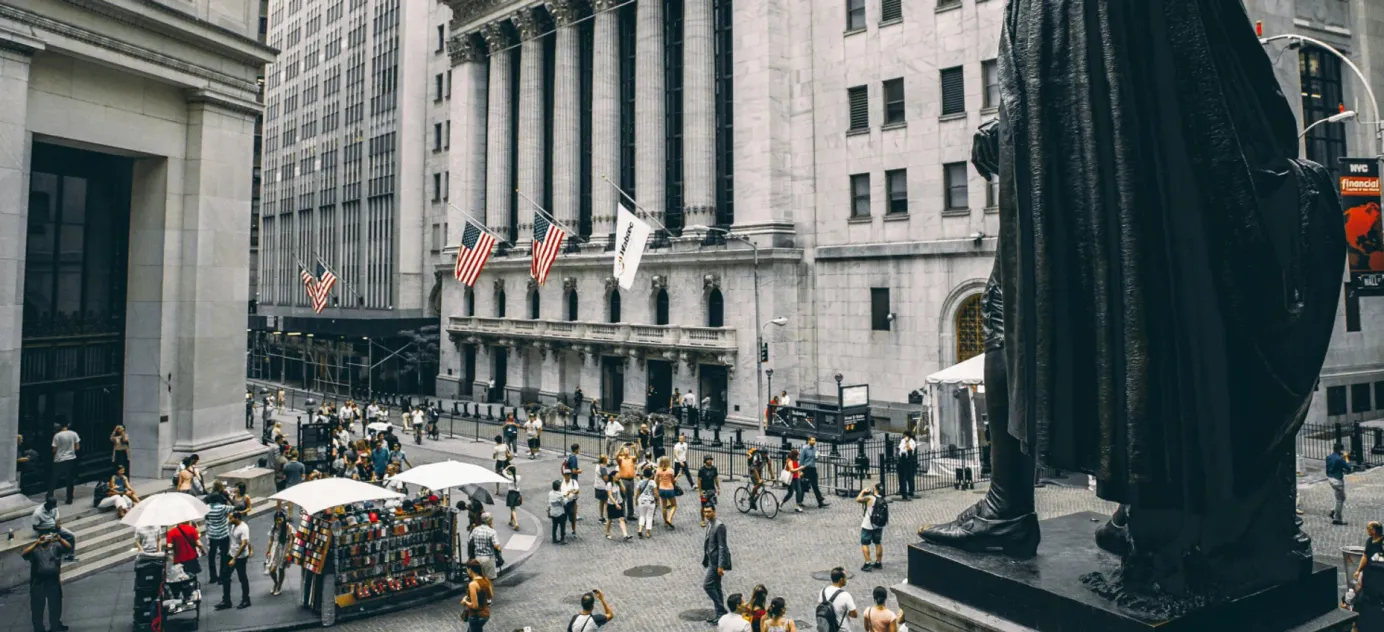
THE BELL WEEKLY: Corporate cuts at Russia’s blue-chips
Hello! This week we look at a wave of corporate job cuts facing white-collar workers as Russia’s economy begins to slow and high interest rates bite. We also cover another in-fighting scandal among Russia’s opposition and Moscow city’s plans to demolish two iconic Soviet buildings.
Russia’s white collar workers face job cuts despite chronic labour shortages
Russia’s economy is expected to cool this year after months of overheating, with the pace of growth set to more than halve. The slowdown will happen against the backdrop of chronic labour shortages — but despite record demand for workers in many sectors, experts still predict job losses.
Who is at risk of dismissal?
- Major Russian companies have been quietly shedding staff since the end of last year, cutting entire projects that have failed to prove their worth or appear too expensive in the current conditions. There have already been redundancies at internet giant VK, the owner of the VKontakte social media platform, and leading mobile operator МТС. Gazprom is also planning to slash the numbers employed at its HQ, and Sber, Russia’s largest bank, is planning layoffs in its e-commerce operation. The main reason is the two-decade high interest rate of 21% — the central bank’s attempt to combat inflation and cool down the economy. But such high borrowing costs hit firms that use debt — even those that are profitable overall — resulting in them curtailing investments and slashing expenses.
- Tech staff, previously the focus of government campaigns to persuade them to stay in Russia, have unexpectedly turned out to be perhaps the most at risk. In 2025, tech companies are not only losing some of their privileges but also face new taxes and fees — they must now pay for distributing advertising online, the suspension of corporate tax introduced after the invasion of Ukraine has ended, and highly-paid workers face an income tax hike.
- Several companies are talking behind the scenes about cutting up to 40-50% of contracted staff, including IT specialists, Olga Petrova, managing partner of VIZIVI Consult, one of Russia’s leading recruitment agencies, said. It’s likely that IT specialists working on investment projects with uncertain prospects will be released, added Anastasia Ovcharenko, a partner at Kontakt InterSearch Russia. “These projects will be closed and their resources redistributed, but there won’t be a big story where all tech staff are fired,” she said.
- There are also layoffs at medium-sized businesses, Petrova said. High debt loads under current interest rates are leading to cash-flow shortfalls and problems with paying salaries on time. In turn, this causes staff reductions and, in some cases, closures. At the end of last year problems with non-payments from counterparties came out as the number one issue facing Russian businesses in a poll carried out by the Russian Union of Industrialists and Entrepreneurs. “Will these problems affect every company in 2025? We hope not. But the fact that this will be a tough year for many is something that is already openly discussed,” Petrova added.
- Nonetheless, headhunters do not expect mass layoffs, especially in industry. “We can’t rule out that in some sectors unemployment might go up slightly, for example if small and medium-sized enterprises leave the market or greatly cut expenditure because they cannot access finance due to high interest rates,” added Natalia Milchakova, senior analyst at Freedom Finance Global. “But here, too, layoffs will mostly affect white-collar workers, not blue-collar staff which practically every Russian industry needs.”
The wage race slows down
- While the Russian economy was overheating (GDP growth in 2024 was 4.1%, exceeding all predictions), wages soared. Businesses were trying to retain existing staff or hire new employees. Nominal wages grew at double-digit rates, outpacing inflation. As of Oct. 2024, nominal wages were up 16.4%, real wages by 7.2%.
- However, in 2025 analysts anticipate more modest economic growth. According to Milchakova at Freedom Finance Global, it will be around 2-2.5%. Economists surveyed by the Central Bank expect 1.6% growth.
- The wage race will likely run out of steam this year, believes Olga Shamber, a partner with recruitment company Get experts. Salaries will rise, but not as fast as before.
- “Business is caught between a rock and a hard place. On the one hand, high interest rates and expensive loans. On the other, this also affects the lives of employees,” explained Anastasia Ovcharenko of Kontakt InterSearch Russia. “If previously they could get a mortgage at 10%, now they can only get one at 30% and that means they will demand more money from their employers.”
- “But there is no longer enough of a profit margin to significantly increase workers’ salaries. There will be no profit cushion to make this possible,” said Buklemishev. Real wages in Russia are expected to rise by just 3-4% this year, according to Freedom Finance Global.
Why the world should care
Labor shortages arose due to discrepancies between the structure of the Russian workforce and the nature of jobs demanded by employers, as a result of Russia’s invasion of Ukraine (and the coronavirus pandemic). This led to an overheating and high wages in many areas facing shortages, especially those related to the military-industrial complex, became commonplace. Industry experts believe this labor shortage will continue indefinitely — nothing can threaten this group of workers (at least for now). Russian IT staff face a different situation. They now find themselves “over-resourced” at a time of high interest rates and a slowing economy, and are the first candidates for the chop.
Opposition infighting: Navalny allies hit back at Katz
Alexei Navalny’s The Anti-Corruption Foundation (FBK) — run by the late opposition leader’s allies in exile — last week accused the wife of Maxim Katz, a popular opposition blogger, of earning hundreds of thousands of dollars from working with companies close to the Russian authorities. The investigation has prompted another scandal among Russia’s fractured opposition, which has long since abandoned any pretence of unity.
- The FBK investigated the Avtorskiye Media agency, co-founded by Yekaterina Patulina, the wife of Maxim Katz, a former municipal politician turned opposition blogger. Navalny’s supporters claim that the entire business operates not through the agency, but through Patulina’s personal legal entity. According to them, she works with the National Media Group which, among other things, owns Russia’s largest TV channels (its board of directors is led by Alina Kabayeva, the alleged mother of Vladimir Putin’s children), VK and Gazprom Media, which owns the country’s leading entertainment channels. Her other client was Positive Technologies, a contractor for defense holding Rostec, which is under US and EU sanctions, the FBK alleged.
- Patulina has earned hundreds of thousands of dollars for her work with various clients over the past few years — money that went into the accounts of her personal legal entity, the FBK claimed. “Despite the fact that Katz is not formally a founder of Avtorskiye Media it’s clear that he is actively involved and it’s obvious that he lives off the money from this business. This is their family income,” the investigation said. Katz himself declined to comment on the investigation, saying that he would not discuss “ongoing Russian affairs” related to his family.
- Commentators described the investigation as the FBK’s response to Katz’s accusations that the foundation had close ties to fugitive Russian bankers involved in fraud (you can read more about that here).
- Katz was accused of having a clear conflict of interests. “Putin’s opponent gets hundreds of thousands of dollars in his family budget directly from the Kremlin,” was how one described it.
Why the world should care
Investigations into the business affairs of a leading opposition blogger’s family are not the kind of content that many expect to see from a foundation that used to highlight corruption among Putin’s inner circle and Russia’s most influential oligarchs. However, it seems that Russia’s opposition movements are more engaged in this kind of “internal” power struggle than any effort to unite against a common enemy.
Moscow to demolish two Soviet architecture gems
Moscow has decided to demolish two famous landmarks of the Soviet period: the former building of the Council for Mutual Economic Assistance (COMECON) and the Great Moscow State Circus. Moscow's civic authorities have the right to pull down any building which, in their opinion, does not fit with the city’s aesthetics
- The COMECON building in the city centre is a Moscow landmark and a fine example of Soviet modernist architecture from the 1960s and 70s. Architectural historians regard the 105-metre structure as the apogee of Khrushchev-era design, perfectly integrated into its urban environment. It was Moscow’s most foreign building — in terms of materials, finishing and construction — since architects and designers from socialist countries across Europe worked together on the project. After the fall of the USSR, the “Book House” as it was known to Muscovites, was home to various organizations within the Mayor’s office.

- The authorities have not openly admitted that the building will be demolished; instead they talk of “renovation.” The official reason is that the building, which is not a protected historical monument, does not meet current “mechanical and fire safety standards”. The “renovation” will be carried out by God Nisanov, the “king of Russian real estate” and his business partner Zakhar Iliyev. It’s not yet known what exactly will rise from the rubble of the COMECON building. But an official familiar with Nisanov’s work summed up his tastes for an article in Proyekt: “Nisanov has an insatiable passion for shopping malls.”
- The Moscow authorities also decided to carry out “reconstruction” (i.e. demolition) of another modernist symbol — the Great Moscow State Circus on Vernadsky Avenue.

- Muscovites who are organizing a petition against the demolition, compared the architectural ensemble intended to replace it as a “psychedelic tent with a passing resemblance to a JBL speaker.”

Why the world should care:
There is no doubt that Moscow’s authorities can push through any project, no matter how monstrous, with no public discussion. Equally, during the current sanctions, it will be impossible to persuade any major international architect to work on the project.





